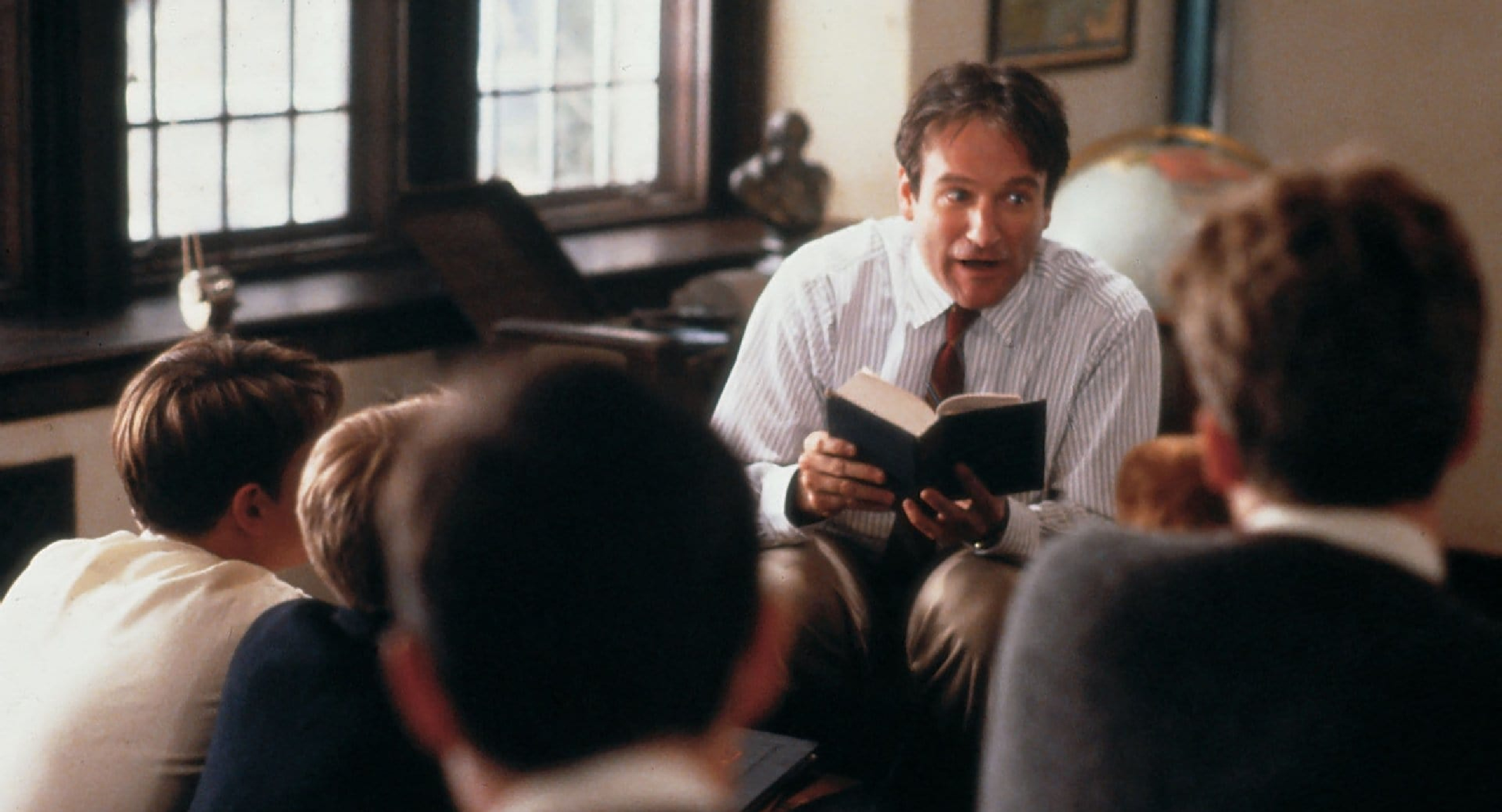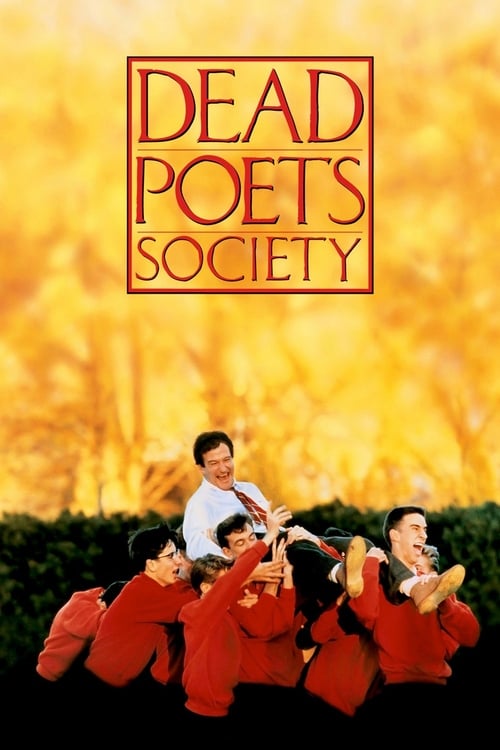Dead Poets Society – Film Review
Published July 27, 2023

A new English teacher, John Keating, is introduced to an all-boys preparatory school that is known for its ancient traditions and high standards. He uses unorthodox methods to reach out to his students, who face enormous pressures from their parents and the school. With Keating’s help, students Neil Perry, Todd Anderson and others learn to break out of their shells, pursue their dreams and seize the day.
Set in the hallowed halls of an esteemed all-boys preparatory school in the late 1950s, Peter Weir‘s magnum opus explores the tumultuous journey of young souls, forever altered by a transformative English teacher who challenges the very fabric of their conventional education. Without a doubt, Dead Poets Society stands as an enthralling achievement, a film that delves deep into the essence of individuality, free thought, and the thirst for life’s profound experiences.
In the picturesque and seemingly restrictive setting of Welton Academy, we are introduced to the unyielding ethos of tradition and discipline, upheld by the school’s unflinching headmaster, Gale Nolan, played with unerring authority by Norman Lloyd. As the film unfolds, the students’ lives are irrevocably shaken when John Keating (a mesmerizing Robin Williams) bursts onto the scene. Williams’ portrayal of the charismatic, enigmatic, and wholly unconventional teacher is nothing short of extraordinary. His boisterous entrance into the classroom sets the tone for what follows – a spiritual journey of self-discovery that resonates with each member of the Dead Poets Society, an illicit club dedicated to exploring poetry’s magic and embracing the splendor of existence.
Weir’s keen eye for detail is apparent throughout, as the atmospheric cinematography captures the verdant landscapes and towering architecture of Welton, juxtaposing the stifling rigidity within its walls. The use of light and shadows in both the intimate conversations between Keating and his students and the spirited poetry sessions in the woods enhances the film’s emotional depth and intensity. The musical score, composed by Maurice Jarre, heightens every emotion, tugging at the heartstrings during moments of triumph and despair alike.
At the heart of this thought-provoking masterpiece is the interplay between the characters, brought to life by a stellar ensemble cast. Each student in the Dead Poets Society represents a unique facet of adolescence, grappling with the desire to conform to societal expectations while yearning for an authentic connection with their inner selves. Neil Perry (played with raw vulnerability by Robert Sean Leonard), whose passion for acting clashes with his father’s rigid vision for his future, epitomizes this struggle. The film beautifully captures the complexities of the parent-child relationship and the clash between generations’ ideals, a theme that remains timeless.
Williams’ portrayal of John Keating stands as the beacon of the film’s brilliance. With his profound wisdom and unconventional teaching methods, Keating liberates his students from the shackles of conformity, encouraging them to “seize the day” and embrace the poetry of existence. Williams’ magnetic screen presence infuses the character with a delightful mix of wit, tenderness, and exuberance. Keating’s eloquence, echoed through the pages of Walt Whitman’s Leaves of Grass, profoundly impacts his students, igniting a passion for poetry and life within their hearts.
The film masterfully tackles themes of conformity and self-discovery. As the Dead Poets Society grows in both members and audacity, the students begin to challenge the oppressive norms imposed upon them. They start questioning authority, embracing their individuality, and pursuing their dreams, despite the consequences. The camaraderie among the young men strengthens, and their experiences become a metaphor for the turbulence of adolescence and the collective yearning for freedom.
However, the narrative does not shy away from the consequences of such defiance. The film candidly explores the price of individuality in a society built upon conformity, culminating in a gut-wrenching climax that leaves a haunting impact. These powerful moments evoke a rollercoaster of emotions in the audience, drawing us deeper into the characters’ lives and struggles.
Peter Weir’s astute direction also explores the teacher-student dynamic, emphasizing the profound impact educators can have on impressionable minds. Keating’s unorthodox teaching methods spark both admiration and controversy among his colleagues and the school administration, raising pertinent questions about the role of education in nurturing creative thinkers and fostering critical minds.
In the film’s final moments, the legacy of the Dead Poets Society is etched into the souls of those who experienced its magic. It serves as a testament to the indomitable spirit of the human soul and the pursuit of passion, even in the face of adversity. The poignant ending leaves us with a mix of melancholy and inspiration, reminding us of the fleeting nature of life and the profound impact one person can have on others.
Dead Poets Society is a splendid film that lingers in the heart and mind long after the final credits roll. With its brilliant performances, evocative storytelling, and exploration of profound themes, the film stands as an enduring ode to the human spirit’s resilience and the beauty of living life to the fullest. Peter Weir’s film continues to inspire and resonate, urging us all to seize the day and embrace the poetry of existence. It is, without a doubt, a film that deserves to be celebrated for generations to come.
